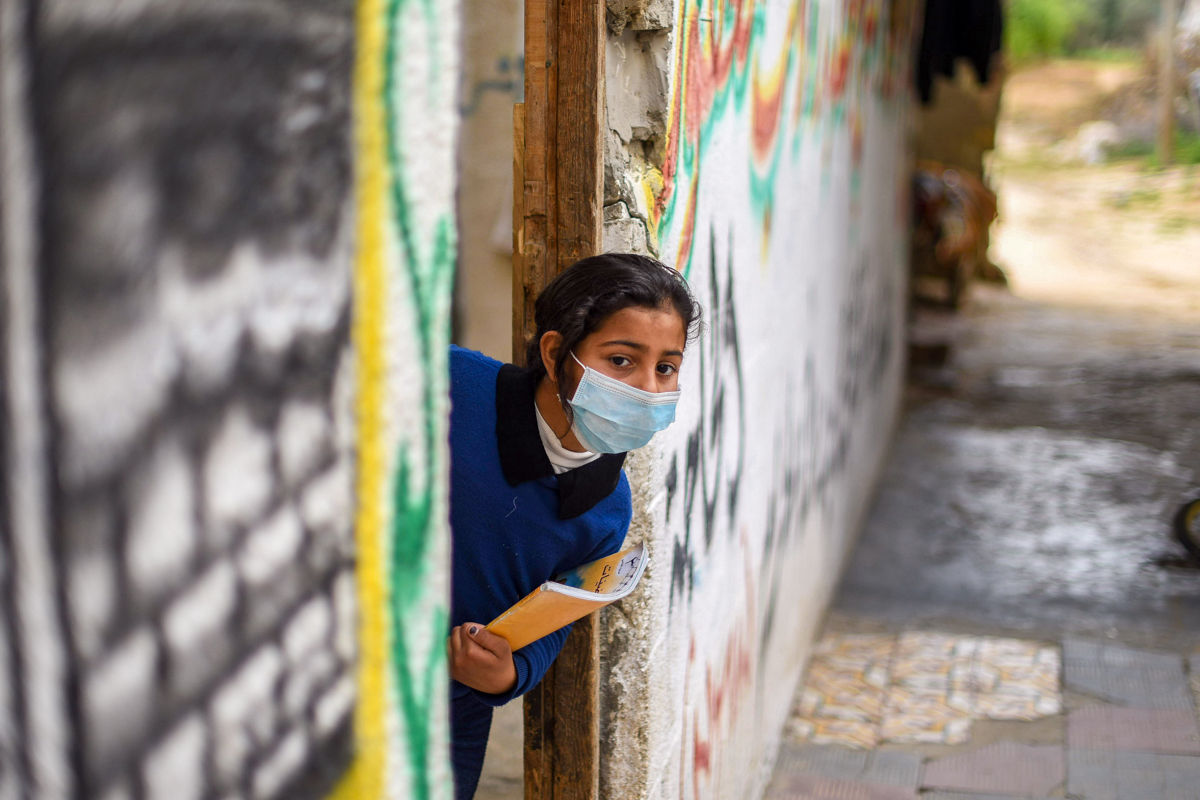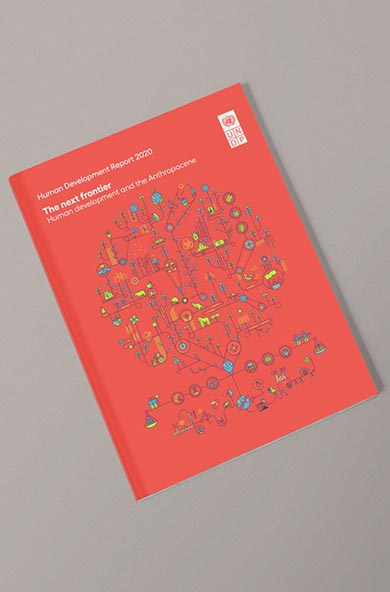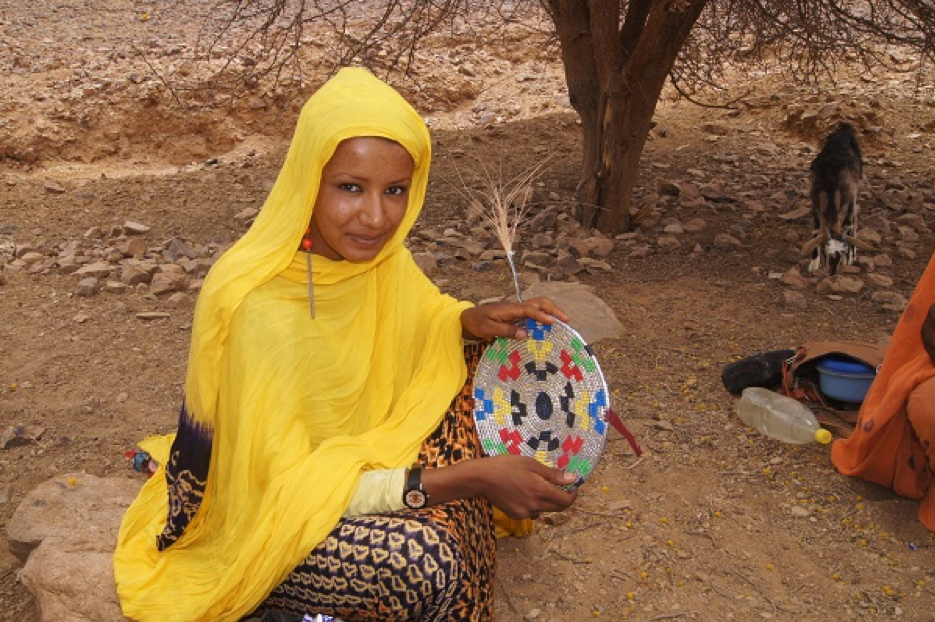
The actions of citizens speak loudly about their needs, aspirations, and the changes they demand to witness in their countries. In Iraq, protests, demonstrations, marches, and sit-ins are becoming a frequent approach to exhibit dissatisfaction with corruption, the security situation, lack of economic opportunities, and lack of access to basic services. A wave of protests was sparked in October 2019 and driven by youth signaling grievances in response to the status-quo. Since then, protests around the country have continued, varying in scope, density, and motive. Simply put, protests are demonstrating the dysfunctional social contract in the country. A social contract is the way in which various segments of Iraqi society experience their relationship with the state and how their position in society influences their expectations and visions for future development.
The UNDP Iraq Country Office has taken the initiative to tackle this complex issue, namely the social contract in Iraq, an issue rooted in years of conflict and political instability. Most important is tackling this issue innovatively, but how?
- The starting point is data:
With the aim of investigating how Iraqis envision the social contract in Iraq, localized data collection and analysis were conducted in 2020 as part of the process launched by the United Nations Development Programme (UNDP) in Iraq in partnership with the Stockholm International Peace Research Institute (SIPRI).This collaboration resulted in the policy paper “Reimagining Social Contract in Iraq” and a quantitative analysis of Twitter data which resulted in the study “The Social Contract in Iraq through Social Media: A Twitter Analysis”. The data sources used to conduct analysis included a desk review of literature, focus group discussions, social media surveys and consultations, and data from 76,863,907 tweets was collected, a sample size that positions this research among the leading big data analytical initiatives by the United Nations. The Iraq specific data collection process revealed that the internal priority areas weakening the social contract in Iraq are corruption, lack of security, poor quality and access of public service, weak citizen awareness and empowerment, and a weak economy.
These internal factors are further magnified by global factors impacting social contracts around the world including the COVID-19 pandemic, social cohesion erosion, economic stagnation, increasing oil prices, climate change, food insecurity, and rising protests. The COVID-19 pandemic hit in 2019, leading to negative societal and environmental effects. The pandemic also influenced economic stagnation, with rising inflation, commodity prices and debt around the world. Moreover, climate change is not only seen and felt, but it is also negatively impacting livelihoods and economies around the world.
Internal and external drivers revealed that the social contract is a complex, systematic problem rooted in years of conflict in Iraq and impacted by various further complexities.
- Tackling complex issues through deep demonstration
The UNDP Iraq Country Office is not the only UNDP office operating in a complex environment. Deep Demonstrations (DD) are an initiative that began with UNDP’s Strategic Innovation Unit, with a “system transformation approach.” This approach embraces a portfolio of interventions to tackle complex systemic challenges. DD is an initiative launched in 2020 and funded by the Danish Government. The UNDP Iraq Country Office joined the Deep Demonstrations in late 2021 with the aim of embarking on an innovative journey to build an adaptive mindset and capacities inside UNDP. The approach encourages staff to be sensors and agents of change, and leveraging systems thinking to tackle issues surrounding the social contract in Iraq. The portfolio approach allows for continuous learning to navigate through complexity and uncertainty. UNDP Iraq embarked on this portfolio journey to produce a new programmatic proposal with clear strategic direction from a systems perspective that will directly influence a stronger social contract.
-Who will support in structuring a portfolio of options to re-imagine the social contract in Iraq?
The collaborative effort to embed the portfolio approach within UNDP Iraq and structure a portfolio of interventions is led by senior management and the Strategic Innovation Unit, driven internally by the Deep Demonstrations Iraq Core Team. The DD Core Team consists of eight members to support the structuring of a new portfolio of interventions to strengthen the social contract in Iraq. The team include members from Anti-Corruption, Social Cohesion, and Environment, Energy, and Climate Change portfolios, with fifty per cent of the core team represented by the UNDP Iraq-Accelerator Lab. The inter-sectorial expertise of the DD Core Team from across UNDP Iraq’s programmes has led to a consolidation of resources, knowledge, and expertise to analyze Iraq’s social contract from various angles. Moreover, the embedding of the UNDP-AccLab in the DD core team has supported in leveraging the use of innovative approaches, system-thinking, future thinking, human-centered approaches, and an overall portfolio approach to enrich the process. One of the unexpected discoveries of the process is that it has led to developing mechanisms to collaborate and generate new knowledge in a new knowledge ecosystem within UNDP Iraq.
-How do we go about with establishing a portfolio of options to re-imagine the social contract in Iraq?
First, Formulating a Statement of Intent: formulation of the intent aims at understanding the problem in its complex setting and identifying the areas related to UNDP’s mandate in Iraq. This step provides our North Star, including the coordinates in which we will build the new portfolio; more specifically it builds our terms of reference for the new interventions. This statement of intent is adaptive and can change with time according to needs and opportunities arising. The statement of intent for UNDP Iraq seeks to instigate transformative change in the social contract in Iraq towards the following effects:
- Stronger trust (between citizens and government, and among citizens).
- Improved quality of life and resilience of communities.
- Expanded sustainable and inclusive growth opportunities for all.

According to the Statement of Intent, UNDP Iraq wishes to make three major shifts:

Second, System Mapping: After determining our North Star, UNDP used System Mapping to improve the general understanding of the social contract issue in Iraq and induce change within a complex system. The key issues and trends surrounding the social contract in Iraq are identified in the data collection phase and documented in the Re-Imagining social Contract Report, which include corruption, lack of security, poor quality and access to public services, weak citizen awareness and empowerment, and weak economy. These five key issues entered three rounds of analysis to produce a visual stakeholder map of the effecting and affected stakeholders. The three rounds of analysis to map stakeholders and produce the relationship map include an internal round by the DD Core Team, a second round by the UNDP Iraq Country Office, and a third round with external stakeholders from public and private institutions. The overall process demonstrated deep interconnections between the various stakeholders benefiting and adversely affected by the weak social contract in Iraq, providing insights on the power struggle taking place and adding a layer of complexity to the issue. It was found that involving external stakeholders enriched the process, providing unique perspectives on analysis as well as possible interventions.
Third, Development of the Problem Space: The problem space is a visual representation of the most important structural features of the social contract in Iraq that requires innovative solutions. According to discussion both internally and externally with various stakeholders, the DD Core Team was able to craft the emerging problem space depicting the axes and elements that construct the social contract system in Iraq. The visual below represents human experiences, resources, and decision-making as the key 'axes' of the problem space of the current social contract in Iraq. Using the statement of intent as the reference, UNDP Iraq's current portfolio is mapped along the axes to enable visualizing the current placement of work, and more significantly, to highlight the 'weak' points of work which do not have a strong effect in enabling UNDP to strengthen the social contract in Iraq. The structured problem space will help identify the new and/or existing strategic entry-points, including untapped opportunities for engagement that are not yet being leveraged in support of the social contract. The main elements (axes) of the problem space are:

Fourth, Sensemaking: In addition to the intent, or North Star, a unique tool is required to examine projects currently implemented by UNDP Iraq from the lens of the statement of intent, also known as sensemaking. A sensemaking workshop for UNDP Iraq lead by the DD Core Team and UNDP-Strategic Innovation Unit took place over a week, with the participation of 11 leading projects and with the involvement of UNDP Iraq Senior Management. The sensemaking aim was to link existing projects and uncover opportunities for new interventions to strengthen support to the social contract in Iraq.

For Iraq, the zooming out process involved with sensemaking enabled the collection and consolidation of insights and common patterns in terms of needs, resources and capabilities, portfolio focus, trust dynamics, partnerships, and relationships, and finally trends and signals of change. The process enabled the UNDP-CO to decide which areas uphold a strong programmatic offer, and where differences are being made. The key findings of the sensemaking workshop include:
- UNDP Iraq’s current portfolio is concentrated on working with local communities and families to ensure better infrastructure and livelihood opportunities, as well as maintaining a strong partnership with the government aiming at developing a strategic framework for climate action and good governance. Hence, the portfolio’s strength is centered around community work and building networks, and there remains tremendous opportunity to further leverage these networks for policy change at the national level.
- The current portfolio is concentrated around learning, communicating, and applying (to some extent) lessons and making decisions; however, the portfolio of interventions has space to mainstream further. The emergent signals of severe climate change in Iraq are not recognized as a factor that affects the social contract. The current portfolio does not leverage climate action as a vehicle to strengthen trust among communities and hence social contract in the country.
- The sensemaking process highlighted the importance of digital tools and digitalization to strengthen government-people trust or people-to-people trust.
The detailed findings of the sensemaking activity were applied to connect the findings with the shifts in the statement of intent to translate insights into evidence and pave the path to action. Next, UNDP Iraq will construct the main elements of the future portfolio to reflect re-imagining the social contract in Iraq.

The 11 projects from the portfolio sensemaking workshop were positioned in the problem space canvas:

The actions outlines above describe the first step of the portfolio approach design, which include assessing the problem. Next, UNDP Iraq and the Strategic Innovation Unit started collaboratively with Chora Foundation to dive deeper in facilitating learning (portfolio), and then forming of a budget of possibilities (impact). Specifically, the second phase of the Deep Demonstration is building on the insights generated and turn the statement of intent into strategic interventions, and specifically a portfolio of options that aim at inducing structural changes to re-imagine the social contract in Iraq.

 Locations
Locations















